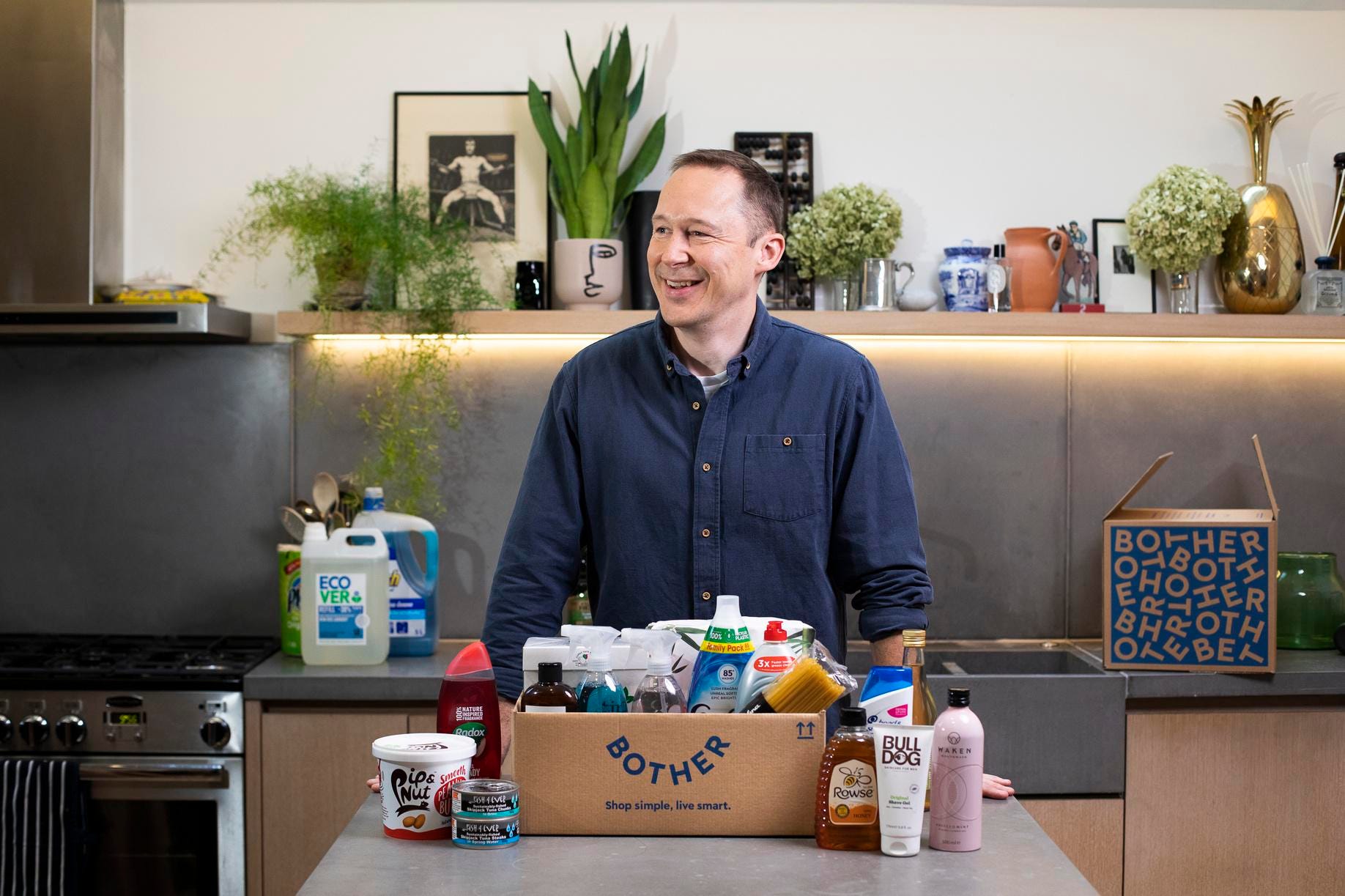
Douglas Morton
British grocery delivery start-up Bother is eyeing profitability in the next 12 months as the market for grocery delivery continues to heat up.
Bother was founded in 2020 amid a rapidly changing landscape for grocery delivery in Europe and particularly in the UK.
The market has been flooded with ‘quick-commerce’ services, offering grocery deliveries in cities in 15 minutes.
Bother, which has raised $12 million from investors, is notably different in its ‘slow’ approach, providing a next-day delivery on a basket of goods that every household needs, typically on a monthly basis.
The start-up isn’t concerned with delivering bottles of milk or loaves of bread – goods that are bought weekly or every few days – but rather inventory for a household that needs to be replenished every few weeks.
“Q-commerce is servicing a consumer desire for on-demand, predominantly food, and we feel that we’re looking at the other end of the spectrum, which is the stuff that people just don’t want to shop for, that should just be part of your household inventory and we see ourselves like a household management tool rather than a shop,” the company’s chief executive Douglas Morton said.
MORE FOR YOU
“What we’re trying to do is consolidate a lot of those household purchases into one run, one monthly purchase to make it easier to manage and more efficient for households in terms of convenience and price.”
Morton said its target markets are “time-poor families” and multi-occupancy homes, like student houses.
Using its AI tools, dubbed the Bother Brain, the start-up puts more weight behind the regular purchases a household needs monthly rather than catering to the on-demand culture of quick-commerce. It pre-empts purchases to have ready.
Unlike its counterparts such as Gorillas and Zapp, Bother isn’t looking for users to use the service every few days or as frequently as possible. Its focus on monthly deliveries leaves it with a narrower window to retain customers.
“Over the course of a month, we’ve only got one opportunity to retain customers whereas weekly and daily purchases have a lot more opportunities. But the reality is, on a unit economic basis, we’re significantly more profitable and we’ve got structural advantages on almost every area of our unit economics as well.”
Morton said the start-up has comparatively fewer costs compared to other grocery delivery start-ups and is more cost-efficient. It also outsources the logistics to a third party and plans to bring that function in-house eventually.
“I would like to see that we would be full company-wide profitable in the next 12 months,” he said.
Bother has $12 million from Hoxton Ventures, Sun Hung Kai & Co and Venrex as it expanded across the UK. Now the company is looking to expand into Europe but Morton is tight-lipped on where exactly and doesn’t rule out possibly raising more funding soon if the right deal comes along.
“The whole focus from day one for us has been capital efficiency so,” he said.
“We’re certainly working to scale, we haven’t had the hundreds of millions of q-commerce have had, but what that’s meant is that we’ve spent a lot more time refining our platform and refining our foundation.”




